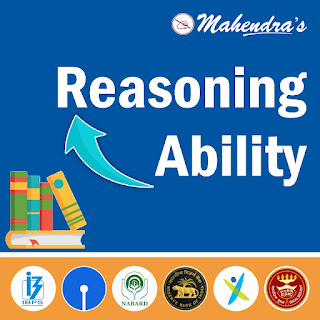Dear Readers,
Mahendras has started special quizzes for BPS | RBI | SBI | NABARD | ESIC | SIDBI so that you can practice more and more to crack the examination. This BPS | RBI | SBI | NABARD | ESIC| SIDBI NABARD Exam special quiz series will mold your preparations in the right direction and the regular practice of these quizzes will be really very helpful in scoring good marks in the Examination. Here we are providing you the important question of English Language for the BPS | RBI | SBI | NABARD | ESIC| SIDBI .
Steel mills and cement factories have been equated by governments traditionally. When urban people get a lot richer, millions of farmers remain mired in poverty. A dramatic shift in world economic policy has been caused by the recession in 2008, fears of food shortages and a rethinking of antipoverty priorities favoring agriculture. This happened before in 1970s when the food prices went up and then there was a real concern that the planet is not able to produce enough grains and meat for the rising population. Investment was plowed by the developing world’s governments and international aid organizations and the technological advancements boosted production. This resulted in Green revolution when food production exploded. Later the Green Revolution was victimized by its own success. Since its peak in mid 1970s food prices plunged by 60% by the late 1980s. Other pressing needs of the poor population like healthcare and education grabbed the attention of policy makers. Farming was constricted because of resources and investment. ‘Agriculture lost its glitter’ when investment on the sector sank by 3.5% by 2004. As the recipients of high growth countries like China and India started consuming more meat, more importance was given to beef up livestock to meet their demands.
Restrictions slapped on grain exports by its major producers and panicked buying by importing countries helped drive food prices soar by 2008. The condition was aggravated when resources and land were reallocated for cash crops such as bio-fuels. Protests broke our fiercely across the emerging world and governments were toppled. ‘Change’ was also witnessed by Africa that missed out the first green revolution due to poor policies and limited resources. Influenced by the East Asian success, African strategy was to make the farmers off their farming land to modern jobs in factories and cities. This strategy proved to be a big blunder when the income inequality between the rural and urban population soared and when FAO estimated that the number of poor hungry people has gone an all time high in 2009 to more than a billion. In India with only 40% of its farming land irrigated, the entire economic boom is stalled by the unpredictable monsoons. The government will have a tough time to meet its economic development target with poor monsoons and hence the drought. Another green revolution is the need of the hour.
1. Which among the following is the reason for the major shift in the thinking of world economic policy according to the passage?
a) Death of millions of farmers
b) Living conditions of poor people
c) Food shortages and recession
d) Environmental Factors
e) None of the above
2. Why did the Green Revolution happen according to the passage?
a) The rise in food prices and hence the inflation.
b) Poor production of food grains due to lack of resources.
c) Meat was not popular in many countries.
d) Investment in agriculture and technological advancements.
e) None of the above
3. What strategy of Africa failed its economy according to the passage?
a) Africa not being a part of the green revolution.
b) Poor policies and allocation of resources.
c) Pulling off farmers to employ them in industries.
d) Poor economic governance
e) None of the above
4. Why is food production necessary for political stability according to the passage?
a) Increased poverty results in economic inequality and affects the competence of the country in world market.
b) Inflation affects the country’s economy.
c) Farmers commit suicide and the international image of the country is spoiled.
d) Many upheavals by affected hungry people results in social unrest.
e) None of the above
5-What is the main purpose of the author in writing this passage?
a) To show the importance of agriculture in a country’s economy.
b) To show the importance of agriculture and the need for another green revolution.
c) To express how poor food production can fail a country by citing Africa as an example.
d) To prove how agricultural revolution will have its own negative impact on the economy.
e) None of the above.
6-The following questions have a word highlighted from the passage with four words following it. Choose the best word that matches the meaning of the highlighted word as your answer.
6. Explode
a) Bifurcate
b) Boom
c) Mend
d) Mince
e) None of the above
7. Soar
a) Slump
b) Slither
c) Shoot
d) Land
e) None of the above
8. Mire
a) Euclid
b) Embroil
c) Untwist
d) Liven
e) Evaded
The following questions have a word highlighted from the passage with four words following it. Choose the best word that is opposite in meaning to the highlighted word as your answer.
9-Topple
a) Hold
b) Lurch
c) Tumble
d) Pitch
e) None of the above
10-Aggravate
a) Nag
b) Provoke
c) Grate
d) Appease
e) None of the above
Q.1 (C)
Q.2 (D)
Q.3 (C)
Q.4 (D)
Q.5 (B)
Q.6 (B)
Q.7 (C)
Q.8 (B)
Q.9 (A)
Q.10 (D)







0 comments:
Post a Comment
MAHENDRA GURU